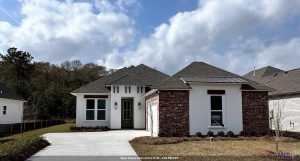Is a Raised Garden Bed Right for You?
A raised garden bed can look lovely but there are things to consider before making the decision to install one. A raised garden bed takes planning and can be a bit pricey. To save on costs, you will want to get it right the first go around. Before you jump into the project, here are some questions to ask when considering a raised garden bed.
1. How do you decide where to put your raised beds?
The location of your bed will depend on what you are growing in your raised garden bed. For example, if you choose vegetables, you will need a spot that gets at least six hours of sunlight. So you will want to choose the location of your bed according to the amount of sunlight the area tends to get in a day. There are sunlight calculators you can use or even an app on your cell such as Sunseeker or Lumos.
2. What type of soil do you need?
Since a raised garden bed is elevated off the ground, you will want to use a soil mix that will hold water and nutrients. Absorbent soil can be a little costly especially if your bed is large. Recommended is a topsoil mixed with compost and peat moss.
3. How deep should you build your raised beds?
If your raised garden is sitting above fertile soil, then it should be raised 12 inches or less from the ground. The reason for this is because plant roots will have access to a foot or so of nutrients below bed level. For soil that is not as fertile, you need to raise the bed higher as high as three feet off the ground.
4. What size should raised beds be?
The length and width of a raised bed will depend on a couple of things. If you want to be able to reach comfortably from both sides, you will need to measure from your arm to shoulder to fingertips and double the length of your arm and then subtract six to eight inches. So basically a popular size is 3 to 4 feet wide by 6,8 or 10 feet long.
5. What’s the best material for raised bed gardening?
The most popular materials include wood, plastic, aluminum and galvanized metal. If you choose to do wood, you will need corner reinforcements and cross bracing. The best types of wood to use include cedar, cypress, redwood, or white oak. You do not want to use treated lumber because it contains toxic chemicals.
Take time to carefully plan out your raised garden. Also, answer these five questions to see if a raised bed is really right for you and your garden.


